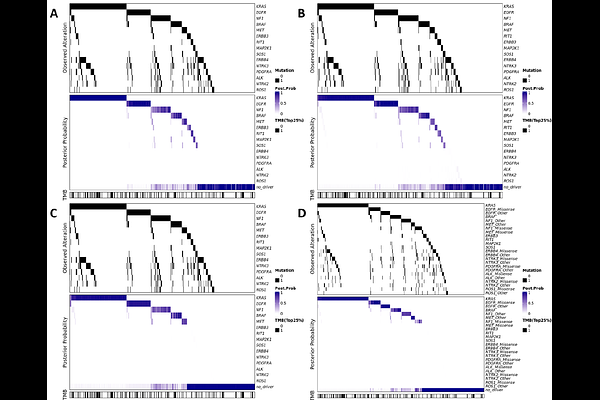A Bayesian Approach for Identifying Driver Mutations within Oncogenic Pathways through Mutual Exclusivity

A Bayesian Approach for Identifying Driver Mutations within Oncogenic Pathways through Mutual Exclusivity
Wang, X.; Kostrzewa, C.; Reiner, A.; Shen, R.; Begg, C.
AbstractDistinguishing driver mutations from the large background of passenger mutations remains a major challenge in cancer genomics. Evidence-based approaches to nominate driver mutations are often limited by the availability of experimental or clinical validation for specific variants. As clinical sequencing becomes integrated into patient care, computational methods provide powerful opportunities to analyze expanding genomic datasets and identify functional candidates beyond the current knowledge base. Among various analytical frameworks, mutual exclusivity, the observation that mutations in two or more genes tend not to co-occur within the same tumor, has been particularly attractive. Building on this principle, we propose BayesMAGPIE, a refined version of a statistical method, MAGPIE, developed previously for identifying driver genes within oncogenic pathways. The new method introduces two key innovations. First, it incorporates information on mutation type using a Bayesian hierarchical modeling framework, enabling the distinction between potential differences in functional effects among variants within the same gene, thereby improving the accuracy of driver identification. Second, it models gene-specific driver frequencies with a Dirichlet prior which effectively controls the sparsity of the inferred driver set and aligns with the biological expectation that most tumor types are driven by a small number of genes. We evaluate BayesMAGPIE through extensive simulation studies to assess its estimation bias and accuracy in driver identification, and benchmark its performance against MAGPIE using TCGA data from eight cancer types.